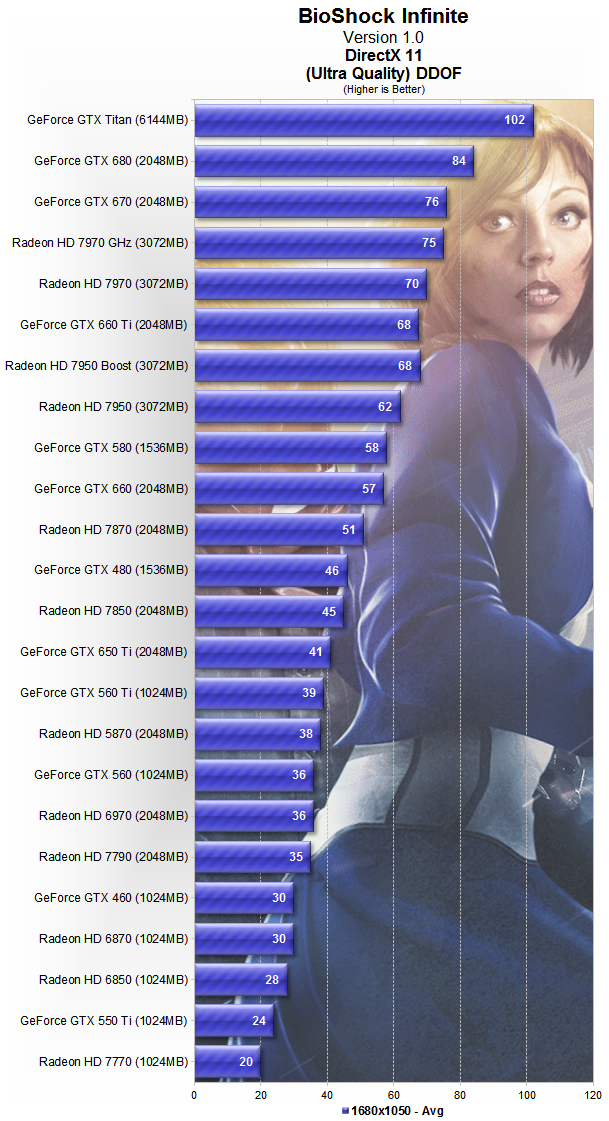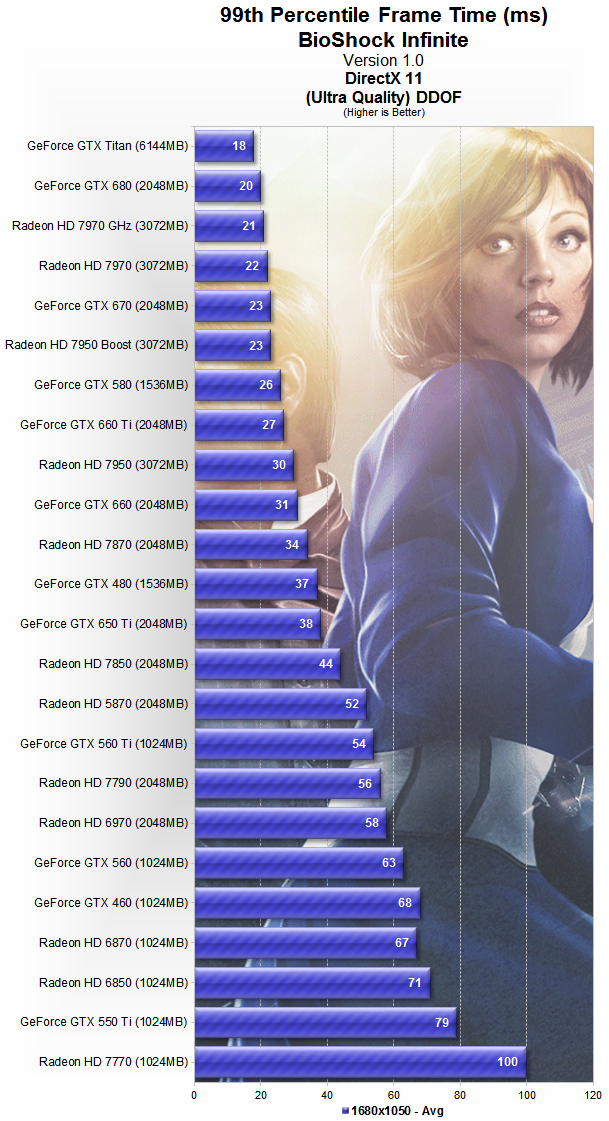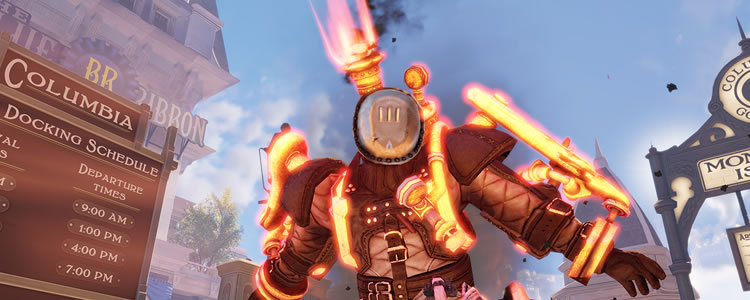1680x1050 Performance

Ideally, we're after an average of 60fps for smooth gameplay, but it is possible to enjoy BioShock Infinite with less. That said, we don't recommend going below 40fps, which means you'll want at least a GTX 650 Ti or HD 7850. At this point, Nvidia cards appear to be working better in BioShock Infinite as the HD 7790 shouldn't be much slower than the GTX 650 Ti, yet at 1680x1050 it lagged behind by 6fps or 15%.
It's a similar situation with the high-end graphics cards as well. The HD 7970 GHz Edition is often found matching or even beating the GTX 680, was only able to meet the GTX 670. Meanwhile, the standard HD 7970 was just 2fps faster than the GTX 660 Ti, which was on par with the 7950 Boost.

Looking at the frame times, we want a minimum of 33ms which is 30fps, while 25ms (40fps) is better and 16.7ms (60fps) or higher is best. Most of the GPUs exceeded 33ms with the GTX 660 and HD 7870 landing right on the edge, quite different to the frames per second results.
The GTX Titan --the fastest graphics card tested – managed 18ms between frames, which allows for an average frame rate of 56fps, substantially less than the 102fps seen above. It is also interesting to note that the HD 7970 GHz Edition is now just 1ms slower than the GTX 680, while the GTX 670 and HD 7950 Boost both provided the same performance at 23ms.
